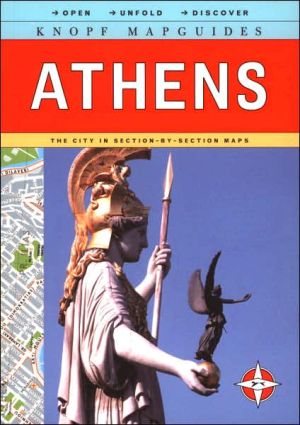

 |

|

The average rating for Athens based on 2 reviews is 5 stars.
Review # 1 was written on 2014-10-21 00:00:00 Jason Cannon Jason CannonA nice overview and a concise way to go through a museum - highlights. When I go back, I'll use it again for reference for sure. |
Review # 2 was written on 2014-08-15 00:00:00 Richard Lawson Richard LawsonPatrick Leigh Fermor, his future wife, Joan, and friend Xan Fielding walked through the rugged Mani region of southern Greece in the 1950s, before sealed roads, wireless and tourism had begun to open it to influences from the outside world. World War II, the end of the Greek Civil War and defeat of Communism were in the very recent past. Fermor was a passionate Hellenist. He found 'all of Greece absorbing and rewarding, [with] …hardly a rock or a stream without a battle or a myth, a miracle or a peasant anecdote or a superstition; and talk and incident, nearly all of it odd or memorable, thicken around the traveller's path at every step'. Instead of following his Greek journeys' paths, as he had originally intended, he allowed himself to write about anything that caught his interest, curiosity or delight as he went from place to place through the mountains, visiting tiny villages; exploring ancient, Byzantine and modern history; connecting places to mythological sites; tracing old and recent feuds; talking, listening and recording. His chapter headings sometimes, but not always, help anticipate where his thoughts will go. Into the Deep Mani, Dark Towers, a Warlike Aristocracy and the Maniots of Corsica, give a fair idea that he will write about the terrain and the people he meets; the unusual style and pattern of villages dominated by towers, reflecting deadly feuds and a society with a traditionally high level of violence. Others only acquire meaning as you read the chapter: Confabulation in Layia: Cyprus and Mrs Gladstone, or An Amphibian Matriarchy and a Maniot Poet, for instance. For me the most memorable chapter is Ikons. It's a wonderful meditation on Christian religious art in the Byzantine tradition, the way it developed then ossified after the fall of Byzantium, and the differences in style and representation between the art of the Christian east and west. I so desperately wanted to see what he was talking about that I have begun to read, as opposed to look at, two excellent books on icons already on our shelves and am seeing what I thought were familiar images in a new light. At times I found his language so dense and his choice of words so obscure that I lost track of what he was writing about, and had to go back to re-read after checking a word meaning. 'Haruspicate', for instance, is one I have never come across before and am unlikely to ever use. Text below comes from the New York Review of Books website: The Mani, at the tip of Greece's'and Europe's'southernmost promontory, is one of the most isolated regions of the world. Cut off from the rest of the country by the towering range of the Taygetus and hemmed in by the Aegean and Ionian seas, it is a land where the past is still very much a part of its people's daily lives. Patrick Leigh Fermor, who has been described as "a cross between Indiana Jones, James Bond, and Graham Greene," bridges the genres of adventure story, travel writing, and memoir to reveal an ancient world living alongside the twentieth century. Here, in the book that confirmed his reputation as one of the English language's finest writers of prose, Patrick Leigh Fermor carries the reader with him on his journeys among the Greeks of the mountains, exploring their history and time-honored lore. PRAISE His greatest book, Mani, was about a journey through that little-known and, at the time, archaic region....[He] travelled [sic] simply, staying with fishermen and farmers, which enabled him to capture the essence of the region....Almost every page has its own literary tour de force, often with intimidating displays of learning and research mixed with fantasy, imagination and acute descriptions of the scene itself. ' Robin Hanbury-Tenison, Geographical Patrick Leigh Fermor has written great travel books besides Roumeli and Mani, but I like to think that his extraordinary style is especially well suited to the subject of Greece, that the beautiful cragginess and almost blinding brilliance of his prose correspond particularly to that country's rugged, dazzled landscapes. Here Fermor establishes an ideal of travel writing: no one responds to a people and a place with more erudition and sensitivity. ' Benjamin Kunkel A really beautiful book of travel in an almost wholly unknown part of Europe, among people who still belong largely to the tough simple Middle Ages; and it shows not only their charm and vigor, but the delights which still await the explorer of Greece. ' Gilbert Highet Mani and Roumeli: two of the best travel books of the century. ' Financial Times |
CAN'T FIND WHAT YOU'RE LOOKING FOR? CLICK HERE!!!